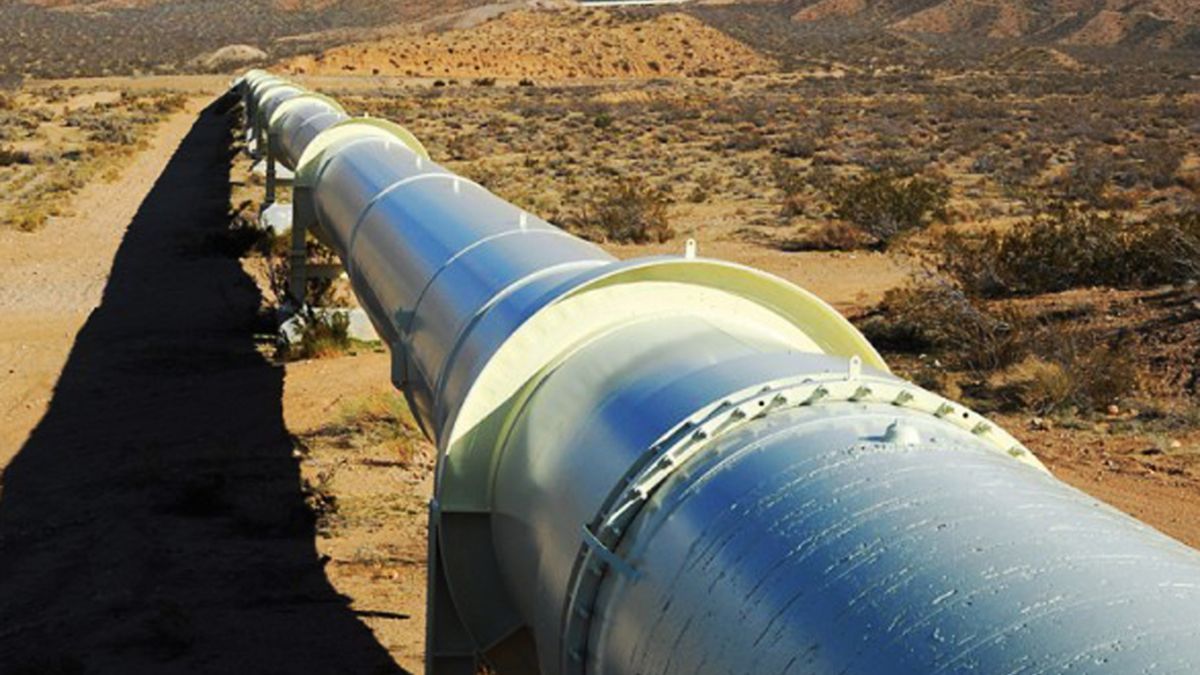In an act in Loma Campana, the Vaca Muerta area exploited by the state oil company YPF in association with the American Chevron, Alberto Fernández celebrated “the start of work to create the Néstor Kirchner gas pipeline”, the most important natural gas transportation project in the last 40 years, at a time when hydrocarbons reach record prices in the world market due to the war in Ukraine.
The tender for the work, whose first stage will cost about 1,500 million dollars and its completion is expected in 2024, will be launched in May to be awarded in July and start in August, according to the planned deadlines. The pipes have already been tendered.
The first section will extend over 558 kilometers, between Treatyén (in Neuquén province) and Salliqueló (Buenos Aires province) and will increase gas supply by 22 million cubic meters per day, according to the government.
The second stage will take the natural gas to San Jerónimo (400 km north of Buenos Aires) and will add another 17 million cubic meters per day, which will allow “supplying urban centers and industries in the center and north of the country and giving the opportunity to export to Brazil and Chile,” said an official statement.
“The first objective of the gas pipeline is to replace imports, to replace all LNG (liquefied natural gas), and the second is to generate exportable balances,” said the secretary of Energy, Darío Martínez, who pointed out that, last summer, Argentina returned to exporting gas to Chile after 15 years after having reversed the drop in production.
Argentina has a growing production of natural gas thanks to the development of its Vaca Muerta shale hydrocarbon formation, but it is still insufficient to be self-sufficient and must import gas from Bolivia (in 2021 12 million cubic meters per day) and LNG.
In 2021, YPF increased its production of unconventional gas by 100%, going from 9 to 18 million cubic meters, said Pablo González, president of the Argentine company founded 100 years ago, privatized in the 1990s and renationalized in 2012.
“Today there is a geopolitical situation that makes it possible for Argentina to accelerate the development of the energy sector. We face an opportunity that requires increasing infrastructure capacity, such as this gas pipeline, and increasing scale investment,” said the Minister of Economy, Martín Guzmán, in a recorded message from Washington where he participates in a G20 meeting.
Vaca Muerta extends over 30,000 square kilometers in Argentine Patagonia and is considered the second most important reserve in the world for shale gas and the fourth for shale oil.
Its exploitation, with the hydraulic fracturing method, is more expensive than that of conventional hydrocarbons. The high investment requirements have delayed the construction of the infrastructure that allows taking advantage of the full potential of the deposit.
In addition to YPF, some twenty companies operate in Vaca Muerta, such as the transnationals Chevron, Shell, Total and Statoil.
Source: Ambito
David William is a talented author who has made a name for himself in the world of writing. He is a professional author who writes on a wide range of topics, from general interest to opinion news. David is currently working as a writer at 24 hours worlds where he brings his unique perspective and in-depth research to his articles, making them both informative and engaging.




